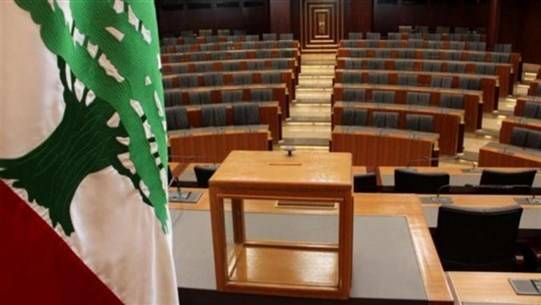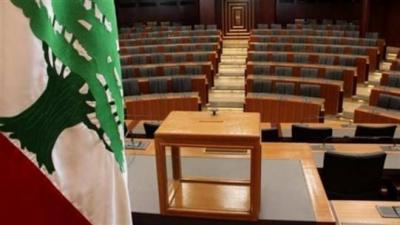The debate and discussion around the "Capital Control" law have resurfaced as it has landed on the agenda of the joint parliamentary committees. Some observers of this issue are skeptical about the possibility of reaching a concrete result after three years have passed since the onset of the financial crisis and collapse. Nevertheless, the stated and unstated positions of political forces and parliamentary blocs suggest there is some agreement to move forward with this project, particularly since it is among the steps and measures demanded by the International Monetary Fund.
These agreements were manifested in the session of the joint parliamentary committees yesterday, which advanced the approval of several sections of Article Two of the law, following the approval of its first article last week. The discussions will continue in two weekly sessions, as announced by Deputy Speaker of Parliament Elias Bou Saab after yesterday's session, following an agreement with Speaker Nabih Berri. Notably, Bou Saab stated that the approved sections concern definitions within Article Two, and discussions halted at the most critical definition related to new funds, before moving into Article Three, which is associated with the establishment of a special committee to oversee the implementation of "Capital Control."
What Bou Saab announced and the subsequent positions from several MPs and blocs suggest a near agreement to approve this project, followed by the restructuring of banks and financial balance projects so that these three projects can be ready as part of a single package to be presented to the general assembly of the Parliament, aiming for integration with the recovery plan prepared by the government. This synchronization was clearly expressed by member of the "Strong Republic" bloc, MP George Adwan, preceded by remarks from member of "Hezbollah" bloc MP Hassan Fadlallah, who raised concerns about "companies and banks working with the Ministry of Finance to collect dues from Lebanese taxpayers 'in cash' and pay them with checks obtained from the market at a lower price, generating substantial profits at the expense of citizens and the state treasury." He pointed out that certain banks and companies received privileges in this area, especially since the banks themselves refuse to accept checks for loan repayments and withhold employees' salaries in full, in addition to freezing depositors' funds.
Judicial authorities were called upon to investigate this matter to understand its circumstances and to assign the Deputy Prime Minister of the caretaker government to follow up on the issue and respond to the questions raised by MPs due to the absence of the finance minister. For his part, member of the "Development and Liberation" bloc, MP Ashraf Baydun, told "Nidaa al-Watan": "We believe that the core issue is the protection of depositors' funds and considering them sacred, which has been affirmed in the first article. We are in favor of the text regarding the definition of new funds being clear, transparent, and unequivocal to prevent any discretionary interpretations by banks and the Central Bank of Lebanon. Therefore, we support clarifying these terms through serious discussions taking place within the committees, which primarily aim to protect depositors' funds."
**Described Raid?!**
In contrast, sources following the "Capital Control" file view that what is happening is paving the way for a "described raid" through precautionary measures leading to "hell in liquidation" and "heaven in restructuring." The discussion surrounding the advancement of the three laws confirms the theory of discrimination between old funds, new funds, eligible and ineligible funds, and undermines deposits through designations like sovereign funds, all leading to granting exceptional powers to the Central Bank of Lebanon, either directly or indirectly, through the supposed committee and the high banking authority that gives the Governor of the Central Bank discretionary power to classify banks, without holding them accountable or even questioning their boards regarding their inability to meet their obligations and enforce laws 267, 11091, and 2867, as seen now with "Baraka Bank," "Federal Bank," and "National Credit." In summary, this results in exempting the heads and members of bank boards from any responsibility or accountability under the pretext of entering "the restructuring heaven."
Sources assert that all that is happening is an attempt, without any doubt, to obscure depositors' rights, even if they try to imply their protection through a legal text, while they are safeguarded by virtue of the constitution, which is considered superior to the law. The sources conclude that the coming days will demonstrate the validity of these trends through the liquidations currently occurring with several banks and the payment of 75 million Lebanese pounds as collateral for deposits, while the rest is seen as a cost to the borrowers and "good luck."




